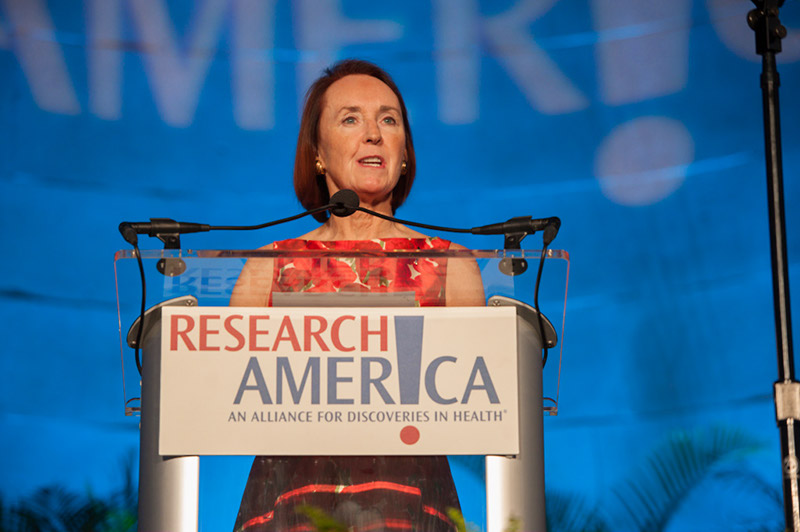Then and Now

Dear Research Advocate,
This letter is my 400th, having started this journey in July 2011. Over the years I have received a wealth of high-content feedback, including strong disagreement from time to time. Our exchanges have helped refine Research!America’s advocacy and heighten our impact. It has been, and continues to be, a true privilege to share and discuss advocacy and public engagement topics with you over the years. Thank you for the opportunity!!
Ironically, my first weekly letter in July 2011 concerned the threat posed by the possible passage of the Budget Control Act (BCA), the same law that set in motion a dramatic across-the-board budget cut and set up nearly a decade’s worth of progress-stifling budget caps. A positive development in overcoming the caps took place this week when Senate Majority Leader Mitch McConnell (R-KY) announced Tuesday that he has initiated conversations with both Speaker of the House Nancy Pelosi (D-CA) and President Trump about the need for a two-year agreement that raises the budget caps. Read our statement here.
The 20 organizations partnering on the Raise the Caps effort are doing great things. The American Physical Society (APS) played an instrumental role in this terrific op-ed in the Kentucky Courier Journal, Twitter activity continues at a fast clip, and advocates continue to use the Action Center to send emails, sign the petition and call the offices of Members of Congress. I made the case for raising the caps in a guest blog for the American Society of Human Genetics. More stakeholders must take action if we are to continue the momentum!
No health threat exemplifies the power of, or need for, research investment more than diabetes, which affects almost 10% of the U.S. population. Yesterday we released an updated fact sheet on what is actually a diversity of diseases, each of which can, and must, be overcome. Use this fact sheet not only to advocate for raising the caps and increasing science funding, but for ending the medical device tax.
Medical technologies have long played a pivotal role in diabetes treatment and new technologies are at the cutting edge of diabetes care today. Yesterday, Reps. Ron Kind (D-WI) and Jackie Walorski (R-IN) introduced H.R. 2207, the Protect Medical Innovation Act of 2019, which would permanently repeal the medical device tax. This bipartisan bill, which already has 226 cosponsors, is an important step toward ending a tax that – as you’ve heard or read me state again and again – contravenes the goal of fast, smart medical progress.
A bit more on the FY20 budget. On Tuesday, the House adopted a rule “deeming” (allowing for) a $1.295 trillion overall funding level for appropriators to start writing FY 2020 bills, with $733 billion slated for defense discretionary and $631 billion for non-defense discretionary funding. In other words, the House majority is going to draft appropriations bills as though the caps have been raised by $17 billion for Defense and $34 billion for non-defense spending. This starting point is not without controversy within and between the Democratic and Republican caucuses in the House, but allocating spending from a topline number higher than FY19 and significantly above the FY20 caps is a positive sign.
During a Senate Appropriations LHHS Subcommittee hearing today, Chair Richard Shelby (R-AL) addressed the budget issue in the context of NIH funding, saying: “I’m not interested in cutting your budget. I’m interested in increasing it…We will have a big struggle this year dealing with the budget, but I think this is a great investment for America and for the world.” Tomorrow, the Senate Agriculture-FDA Appropriations Subcommittee’s outside witness testimony is due. Here is a link to Research!America’s testimony.
At this month’s Research!America alliance members meeting, Liz Fowler, Vice President, Global Health Policy at Johnson & Johnson and former Chief Health Council on the Senate Finance Committee, will discuss process and policy considerations around prescription drug pricing, and Lizbet Boroughs, Associate Vice President, Federal Relations at the Association of American Universities, will update us on recent actions involving foreign funding of U.S. academic research. This lunch meeting and call will be held on Wednesday, April 24 from 11:45 a.m. – 12:45 p.m. ET. Email Jacqueline, [email protected] for more details and to RSVP!
Sincerely,
Mary Woolley




